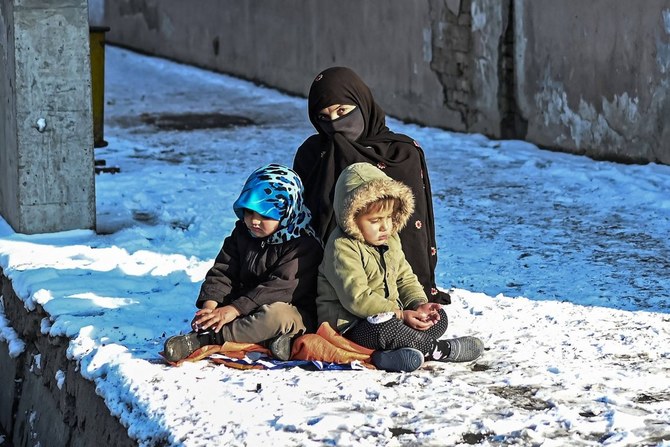The world must act now to tackle Afghanistan’s growing humanitarian crisis, England’s children’s commissioner has said.
Responding to Sky News reports of children being locked up in prisons for “stealing bicycles,” growing hunger and the sale of young children and organs, Dame Rachel de Souza echoed calls by politicians to help those in need through a “pledging conference.”
She told Sky News: “An international conference is the least we can do. This needs major action. It’s absolutely heartbreaking to see those reports, but we mustn’t turn away, and I think this is one of those situations where everybody — all of us — every government, internationally, must act to support those children.”
She added: “To think of those children in the middle of winter … and the stories about selling young girls, is just awful and we really must act. We can’t in 2022 have children experiencing this.”
Former UK Prime Minister Gordon Brown has been among the most vocal advocates of a donor conference to raise $4.4 billion in funds to stave off mass starvation and death among Afghan children.
He said the money “must come now or Afghans will conclude the West will never help them — even in their hour of greatest need.”
Afghanistan is “now a land all but forgotten — and our eyes have turned away as the planet’s biggest humanitarian disaster unfolds and people die, many frozen to death,” he wrote in the Daily Mirror.
“Urgently needed aid to pay for food, healthcare and girls’ schooling is not flowing in anything like the amounts needed.”
Mark Lowcock, a former UN undersecretary-general for humanitarian affairs, said: “The vast majority of the population are starving and that is the reason people resort to these extreme measures.
“It’s not at all appropriate to enforce a sort of collective punishment on the total population of the country because you don’t like the regime that those people haven’t chosen.”
Baroness Amos, another former UN undersecretary-general, told Sky News that if money is not urgently sent to the country, 3 million children under 5 “will face acute malnutrition by March. Of those, a million children will die.”
The UK Foreign Office last month pledged to release an additional £97 million ($131 million) in promised emergency aid for Afghanistan, which the department said will provide 2.7 million people with food, health services and water.
But even with additional funds, millions in Afghanistan will remain in danger of starvation, impoverished and freezing until a longer-term solution is found.
Billions of dollars’ worth of Afghan money held in overseas banks or organizations was frozen when the Taliban seized the country from the Western-backed government.
Late last month, the World Bank came under pressure from a group of charities, including Save the Children, to release more than $1.2 billion in Afghan cash which has been frozen since last year.
Gwen Hines, head of Save the Children UK, urged the US and UK to push to unblock the trust fund to support education and health.
“It becomes a vicious circle with everybody waiting for everybody else. But people need to get through winter or they will starve,” she said. “Parents are selling their children. We can’t wait, we have to act now.”

